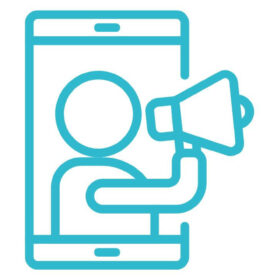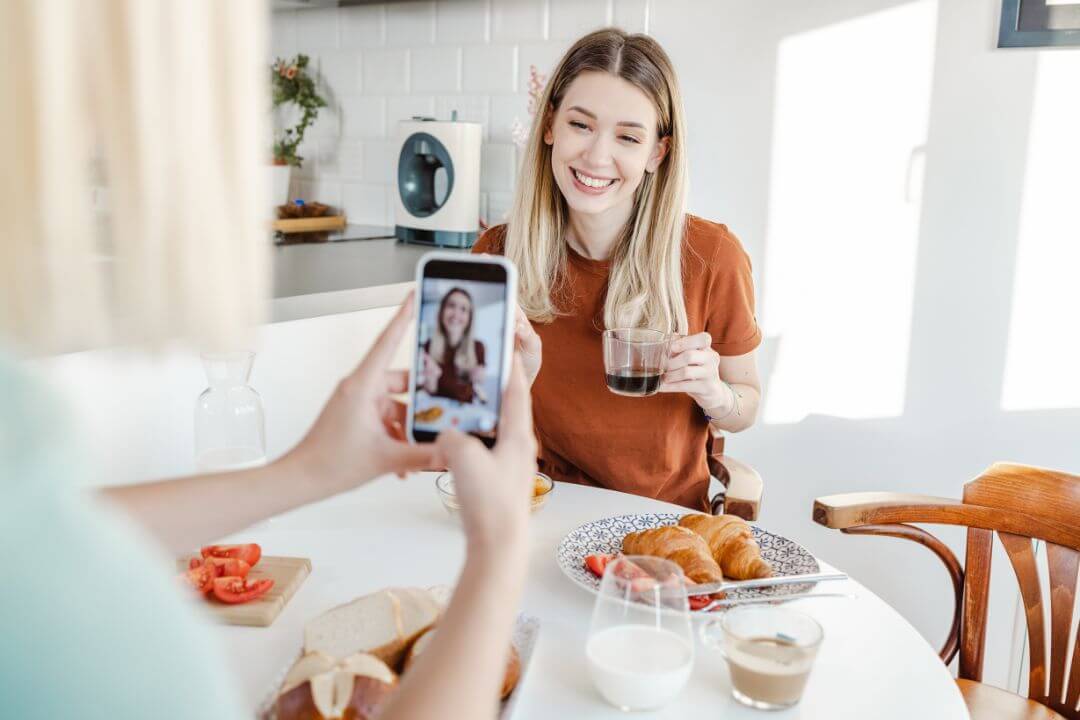What is Social Media Marketing?
Social media marketing refers to the process of utilising social media platforms to promote products, services, or brands and engage with a specific target audience. Creating and sharing content, running paid advertisements, and fostering meaningful interactions are key pillars required in any social media marketing strategy.
By leveraging the power of social media, businesses can amplify their reach, build brand loyalty, and generate leads. As a social media marketer, you would also need to be aware of the different types of social media marketing methods available to you and what they can do for your brand.

Types of Social Media Marketing
Content Marketing

Content marketing is a fundamental strategy that involves creating and sharing valuable, relevant, and consistent content to attract and retain a clearly defined audience. This method focuses on providing useful information, entertaining stories, educational resources, or engaging visuals to capture the attention of potential customers.
By delivering valuable content, businesses can establish themselves as industry experts, build trust with their audience, and nurture long-term relationships.
Influencer Marketing

Influencer marketing involves collaborating with influential individuals on social media to promote products or services to their dedicated followers. Influencers have built a loyal and engaged following, and their recommendations carry significant weight with their audience.
By partnering with relevant influencers in your niche, you can tap into their reach and credibility to increase brand awareness, drive traffic, and generate conversions for your product or service.
Paid Advertising

If you’re looking for wider reach, social media platforms also provide paid advertising options which enables businesses to reach a specific audience segment and drive desired actions. Through targeted ads, you can set parameters such as demographics, interests, and behaviours to ensure your message reaches the right people on the platform.
Paid advertising offers various formats, including display ads, sponsored posts, or video ads, allowing you to engage with users and encourage them to take actions depending on your goals, such as making a purchase, signing up for a newsletter or visiting your website.
Community Engagement

Community engagement is about actively participating in conversations, responding to customer queries, and building a sense of community around your brand. By being present and responsive on social media, you can establish genuine connections with your audience instead of just a business relationship.
Engaging with your community builds trust, strengthens customer relationships, and encourages brand advocacy. It’s essential to create a positive and inclusive environment where customers feel heard and valued.
Social Media Contests & Giveaways

Organising contests or giveaways on social media is an effective way to encourage audience engagement, increase brand awareness, and grow your follower base. By offering enticing prizes or exclusive experiences, you motivate your audience to participate, share your content, and spread the word about your brand.
Contests and giveaways generate excitement, create a buzz around your brand, and provide an opportunity to showcase your products or services. Remember to set clear rules, promote the event extensively, and ensure fairness and transparency in the selection process.
The Top Social Media Platforms
Facebook remains a strong force in social media, attracting users from various demographics. With its vast user base, businesses can reach a wide audience and connect with potential customers of all ages.
From young adults to seniors, Facebook offers a platform for sharing engaging content, promoting products or services and fostering meaningful interactions. Its robust advertising tools enable businesses to target specific demographics based on interests, location and more.


Instagram’s visually appealing nature makes it a popular platform, particularly among younger audiences. With its emphasis on photos and videos, businesses can showcase their products, behind-the-scenes outlook and trending content to capture the attention of millennials and Gen Z’s.
Influencer collaborations and user-generated content also play a significant role in driving engagement and brand loyalty on Instagram. With features like Stories, Reels, and shoppable posts, businesses can creatively engage with their audience and drive traffic to their websites.
Twitter’s fast-paced and real-time nature makes it an ideal platform for breaking news, trending topics, and engaging in public conversations. It attracts users of diverse demographics, but particularly those interested in the latest news, politics and niche interests.
Although limited by a character-limited format, businesses can share concise messages, updates and links to relevant content in threads that make for engaging reading material. Twitter also allows for direct interactions with customers, providing opportunities for customer support and addressing queries or concerns promptly.


LinkedIn caters specifically to professionals and businesses. It offers a platform for networking, showcasing expertise and sharing industry-specific content. With its focus on career development, thought leadership, and business-related discussions, LinkedIn is an ideal space for B2B interactions, recruitment efforts, and building professional relationships. It allows businesses to establish their brand presence and gain visibility within relevant professional communities.
YouTube
YouTube’s dominance in the video-sharing space provides businesses with a platform to engage and educate users through fast-moving visual content. Businesses can create branded channels to share product demonstrations, tutorials, vlogs, and entertaining videos that have the potential to reach their massive global audience base.
What’s more, YouTube offers opportunities for businesses to reach a wide audience and leverage monetization options such as ads, sponsorships and partnerships.


TikTok
As one of the newer social media platforms out there, TikTok’s explosive growth has madea name for themselves as a go-to platform for short-form video content and viral trends. With its focus on creative expression, humour, and entertainment, TikTok attracts a predominantly young user base, especially Gen Z’s.
Businesses can leverage TikTok’s algorithm to showcase products, participate in challenges and collaborate with influencers to reach a highly engaged and active audience. With its ability to quickly generate buzz and drive organic reach, TikTok offers unique opportunities for brand exposure and virality.
Pinterest serves as a digital discovery and inspiration platform, where users search for and save ideas across various categories such as fashion, home decor, recipes, and more.
With a primarily female user base, businesses can showcase visually appealing content and products that align with Pinterest users’ aspirations. By creating engaging visuals and sharing DIY projects, interested users will become traffic to websites through carefully curated pins and boards.

Social Media Marketing Strategy for Malaysians
To effectively reach Malaysian audiences through social media marketing, it’s crucial to understand the local context and preferences. Consider the following strategies:

Know your target audience
Research and identify the demographics, behaviours, and preferences of your target audience in Malaysia. This knowledge will help you create content and messaging that resonates with them.
Start by posting content and analysing the trends, including what time they are most active, what style of content they prefer and which platform they prefer.

Localise content
Tailor your social media content to suit the Malaysian culture, language, and traditions. You can always check local news sources, relevant influencers and other social media pages for trending content or inspiration for your content.
Incorporate local events, festivals, and holidays into your social media campaigns. Big holidays like Hari Raya, Chinese New Year, Deepavali are always great choices to build a marketing campaign around.

Leverage popular platforms
Focus your efforts on social media platforms that are widely used in Malaysia, such as Facebook, Instagram, Twitter, and YouTube. Understand the unique features and user behaviour of each platform to optimise your marketing strategies.

Engage with influencers
Collaborate with popular local influencers who align with your brand values and have a strong following in Malaysia. After all, almost 75% of Malaysian consumers rely on influencers to provide reviews and knowledge of a product before making a purchase.
When looking for a Malaysian influencer, ensure that they are part of your industry and niche. Educate them about your products/services which can give them the best possible experience to share with their audience. Their recommendations and endorsements can significantly impact your brand’s visibility and credibility.

Utilise user-generated content
Encourage your audience to create and share content related to your brand. User-generated content helps build trust, authenticity, and loyalty among Malaysian consumers.
You can utilise contests and giveaways as a way to entice your audience to create content aimed at promoting your brand, such as a branded hashtag, artwork, comments on your platform, posting photos, etc.
Get Started Now
Crafting an effective social media marketing strategy is crucial for Malaysian businesses aiming to stay competitive in the digital landscape. By understanding the types of social media marketing, tailoring strategies for the local audience, and utilising the right tools, you can maximise your brand’s visibility and engagement. At Flow Digital, we specialise in helping businesses achieve their social media marketing goals.
Visit our social media management services page to learn more about how we can assist you in developing a winning strategy.








